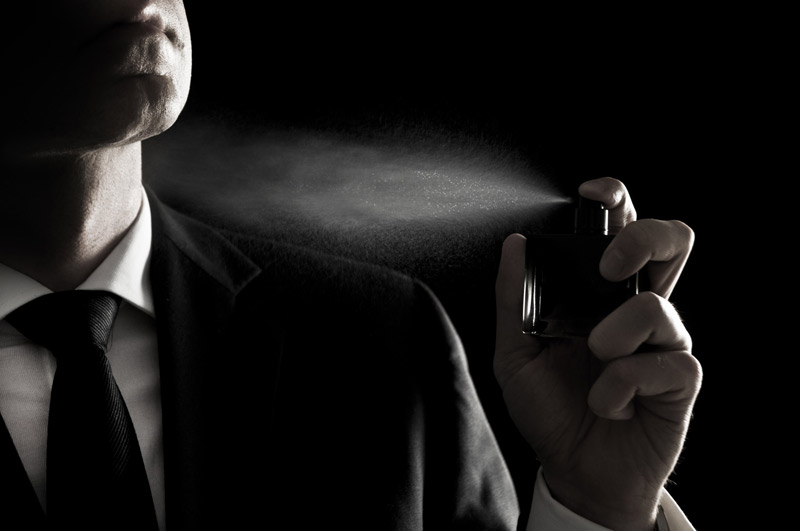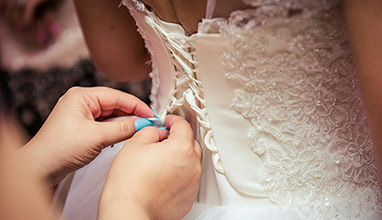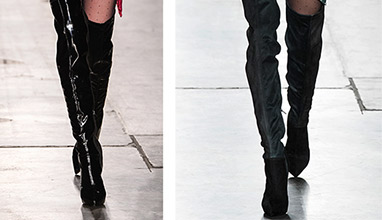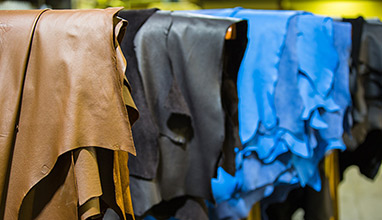Finding Your Signature Scent: A Complete Guide for Men and Women
Using perfume or cologne is about more than just smelling nice. Having a signature scent is how people will recognize and remember you. It can also act as your message to the world and how you choose to express yourself.
Finding your signature scent, however, isn't as easy as walking in a shop and picking the first scent you like the best. Think about it as more of a journey, and not a rushed one!
Here is our guide to finding your signature scent.

Know What You're Smelling
It's hard to discern what *exactly* you smell if you don't know what it is. "This perfume smells sweet, must be... vanilla?"
This helpful list of fragrance families, or categories, will help you understand and be able to vocalize what it is you like and don't like and put you on the track to finding the perfect scent for you.
Fresh - Often characterized by citrusy notes like lime, orange, or lemon. The term "fresh" can also include aromatic and herbal notes, like rosemary, lavender, or basil or lavender. Fresh scents often remind us of spas or a yoga studio.
Green - Similar to "fresh" scents, green scents are natural. Green scents are often compared to the smell of a wheatgrass shot, a freshly mowed down, or dewy moss early in the morning.
Floral - The floral is the broadest and encompasses everything from the classic rose to white florals (lilies, ylang-ylang, gardenia, etc.) to peonies, daisies, and violets.
Floral scents are the most iconic and dubbed the most feminine. These beautiful feminine fragrances have been worshipped for so long because they are known to be "romantic and tender."
Spice/Smoky - We will use the term "smoky" or "spice" for this category despite numerous perfume companies continuing to use the word "oriental". It's argued that using the term "oriental" as a perfume category is offensive and harmful.
This scent family is reminiscent of burning incense, warm spices, leather, and smoke. Quite often, fragrances labeled as "oriental" or "smoky" have notes of vanilla, but not the sweet vanilla scent of vanilla cupcakes. The true aroma of vanilla is rich and earthy, similar to tobacco.
So, when you think of spice, think of smoky wood scents like a burning campfire, burning incense, a blown-out matchstick, or fragrant cedar chips. (We love Joop Homme!)
Woody - This fragrance family is self-explanatory. Marketed as a more "masculine" fragrance, these notes are packed with scents that remind us of nature, such as dry wood and cedar.
These scents can range from a spicy and aged like an old church or library (patchouli), to a nutty and subtle cream flavor (like pralines and cream ice cream), pine, sandalwood, or even a freshly sharpened old No. 2 pencil (cedarwood).
When thinking about woody scents, think about the smell of undergrowth when walking through a forest in the fall.
Musk - No, not the same type of musk you would find in the unwashed armpit of a teenage boy. Musk is a complex and alluring scent that can turn heads and can give anyone that catches a whiff a visceral feeling.
Traditional musk was an animal byproduct found in deer secretion. Nowadays, perfumers rely on synthetic musk to mimic the original scent.
Since musk is animalistic in nature, it is known for having sensual undertones. The odor these animals secreted are powerful, intended to make other animals sexually aroused.
Aquatic - Think of crisp and sparkling scents like salty seawater. Aquatic scents are commonly found in fragrances marketed for men or labeled as sporty and outdoorsy fragrances.
Understand Why Some Fragrances Cost $20, and Some Cost $200
Longer-lasting power is often the difference between cheap and high-quality expensive fragrances. Less expensive fragrances often have top notes that are at first very strong (somewhat metallic-y) but wear off rather quickly due to the higher alcohol content.
More expensive fragrances are made with higher-quality ingredients and contain less alcohol. The abundance of oils makes for the complexity of a heart and dry down, making for a scent with a longer-lasting power.
Don't Rush the Process
If you're wondering how to find your signature scent, one of the keys is time. Finding your signature scent should not be a rushed process. Instead of just spraying and sniffing and making a rush decision within minutes, try spraying a fragrance onto a paper blotter and leaving it to sit for a few minutes.
Then you can sniff the fragrance, but the key to testing and sniffing isn't shoving the blotter directly into your nostrils. Wafting the blotter towards yourself allows you to get a feel for the scent as it would when someone else is smelling the scent on you.
Consider Your Lifestyle When Choosing Your Scent
Choosing your signature scent isn't as easy as telling the person at the store that you like the smell of roses and going with a fragrance that has hints of that note. You also need to consider how a scent will fit and function in your current lifestyle.
Your signature scent sends out a message into the world about you and the story you want to tell. If you are a male looking for a fragrance that reminds people of power and masculinity, you need a rich smoky, and spicy fragrance.
If we can express ourselves through the way we dress, the same can be said about the way we want to smell.
Try Out Only a Few Scents at a Time
It's great to try and smell as much as you can, especially if you don't have an idea of what kind of scents you like, but try limiting yourself to sniffing three scents fragrances per visit.
You're giving your olfactory bulb more of a workout than it's used to when it comes to scents, so give each fragrance its own fair and proper shot.
Give the Scent a Few Hours and Sniff Again
It's essential when testing fragrances that you see how a scent evolves after a few hours - Yes, hours.
Colognes and perfumes evolve and have "top notes," a "heart", and "dry downs". Choose two or three fragrance-free spots on your skin like the crook of your elbows and spritz, then wait.
When you allow the perfume to settle on your skin, you get a better sense of the full scent because it settling on your skin for some time gives the different ingredients time to meld with the chemistry of your body.
Top Notes: A scent's top note lasts around 20 minutes and is your first impression of the fragrance
Heart: The heart lasts for the better part of the day, around four hours.
Dry Down/Finish: The phase of the fragrance in which there is no development anymore and has reached its base notes. Since the fixatives and oils in a fragrance interact with each person's body chemistry differently, the dry down is unique to every fragrance and every individual.
Trust Your Gut
There's a reason you keep returning to a fragrance sample and liking it. There is something about the fragrance that is drawing you in. You may think you want or have your heart set on a specific scent, and only to realize the scent that entices you the most is something different.
Also, try not to be so hard on yourself if you don't like popular or unfamiliar fragrances. Our preference for fragrance is often rooted in familiarity. Sometimes it isn't that you don't like a scent per se, you just have never worn it before (or even smelled), and your nose is learning.
Chanel No. 5 is one of the most beloved fragrances in the world, so if you wanted to fall in love with this cult classic only to realize you are one of the many people who find the fragrance "overpowering" or "for old ladies", know it happens to almost all of us. To each their own!
Trust your gut and go with the fragrance you are drawn to the most.
Be sure first to request a sample of that fragrance and spray it on yourself. Since body chemistry can affect how a fragrance smells, check and smell the area you sprayed the scent every 20 minutes or hour to see if you still like it.
Pass on the Coffee Beans
If you walk around almost every perfume or cologne shop, you will find tiny cups of coffee beans throughout the store. People claim that sniffing coffee beans can "reset" our scent indicators. This is, of course, not precisely true.
Coffee is another competing and robust scent. It's surprisingly better to smell... yourself. Our own scent and pH does a better job of recalibrating our nose than the smell of coffee. Next time you're out looking for your signature scent, remember to pass on the coffee beans and instead bury your nose in the crook of your elbow that doesn't have fragrance.
Finding Your Signature Scent
Finding your signature scent isn't as easy as walking in a shop and picking the first scent you like the best. The process is more of a journey rather than a destination, and not a rushed one!
We hope our complete guide has given you the confidence to walk into any fragrance shop with confidence and ready to find your signature scent.
If you liked this post and helpful, check out more from our blog for posts like this!
Hits: 1727 | Leave a comment


















